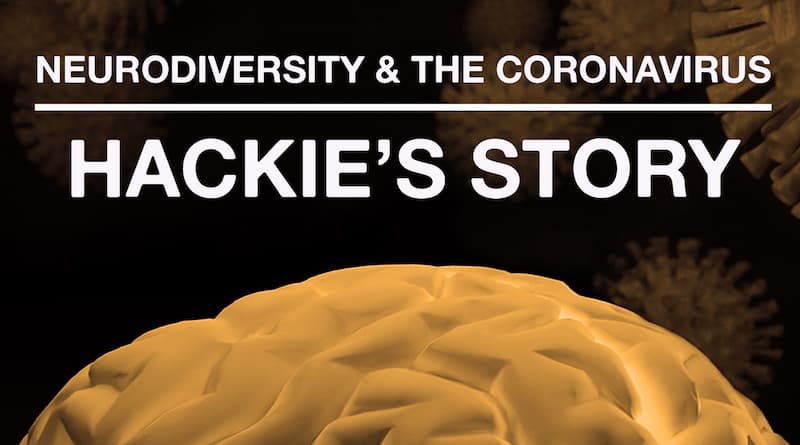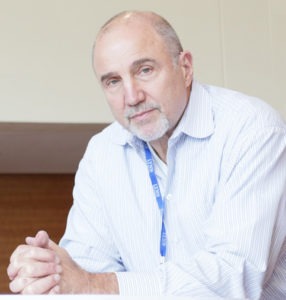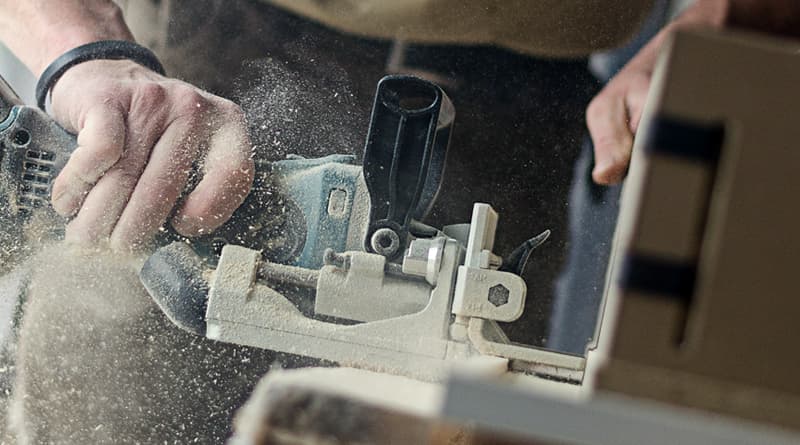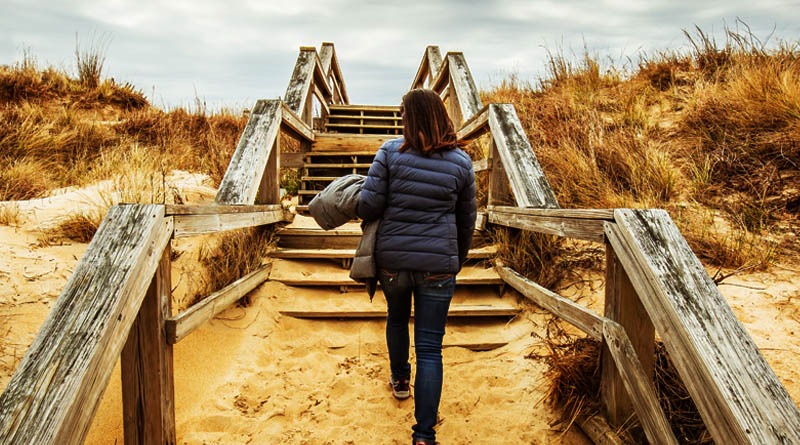
The Coronavirus Pandemic: Hackie’s Journey With ADHD
The Pandemic: Hackie’s Story:
About the Author:
Harold “Hackie” Reitman, M.D. is the founder of the nonprofit Different Brains® Inc. and DifferentBrains.org. He is also an author, filmmaker, retired orthopedic surgeon, former professional heavyweight boxer, the past chairman and president (and current board member) of The Boys and Girls Clubs of Broward County, and a neurodiversity advocate.
Being the Founder of Different Brains:
Q: Describe your role for Different Brains.
A: [As the founder of Different Brains], my role is to be the cheerleader for really smart people that are smarter than me, whose brains are a little bit different… people who have made Different Brains the world’s largest provider of neurodiversity advocacy multimedia, of which this is a part… this interview is a perfect example of how and why Different Brains works. I just cheerlead people and then they do what they are capable of doing, and they advance and help each other. The whole team pulls together inclusively with all of our different brains and then end result is good stuff…
Life Before the Pandemic:
Q: Describe your everyday life before the pandemic hit. Include social aspects such as work, extracurricular activities, and interacting with others.
A: My girlfriend, Gretchen, would have these big parties at the house all the time. There were always friends over for dinner; there were always get-togethers for the holidays and for not-holidays. Tatica, who is Gretchen’s 92-year-old mom, lives with us, and when he’s not up in college, her son, Philip, lives with us too. Now, the house is empty. No parties, no bunch of people always over, not a lot of noise, it’s very very different.
I used to love going to the Different Brains’ office across the street in the Roselli Building here in Fort Lauderdale, which is walking distance from the house, and have an office full of bright people. I would bring in people from the community for [our interns] to meet, work on projects together, and there was a lot of social interaction. All of that is gone. Now, we have big meetings on Zoom. It’s good, but it’s different; very different.
I don’t go to the gym anymore, which was a big part of my life. We have a gym here in the garage, but it’s a makeshift one. I’ve changed my habits. I go for long walks now and I don’t get to see people live very much. If I do, it’s socially distant. It’s been a big difference, and I think neurophysiologically, if I give somebody a hug in-person, the oxytocin and all the happy chemicals are secreted. That doesn’t happen over Zoom. Of course, I miss seeing my progeny, Asa, very much, but we do get to Zoom frequently and talk by phone, and I have Gretchen here, even though she is working long hours as an endodontist… I think when people are isolated and alone, it must be so much tougher. I do think so… It’s a tough time. No question about it.
Reacting to the Coronavirus & Social Distancing:
Q: Describe how you initially reacted to the coronavirus.
A: What I sometimes do is play mind games with myself, and what I’ve done since the beginning of this thing is make the mental adjustments. I played pretend that this is going to be permanent and this is how it’s gonna be. It’s easier said than done and I am a bit of a worrywart. I have high anxiety, so it’s kind of paradoxical for me to take that approach, but that’s how I’ve dealt with it. What can I do to turn this bad break into a good break, do it with a smile, and try to be happy about it, rather than make plans about something on a never date? What can we do? What’s better for us?
Q: How do you deal with social distancing?
A: I just don’t see [people]. I socially distance and don’t hug or anything. I go on walks with my friend, Joey Esposito, and we don’t wear masks because we’re six to ten feet apart. I have Zoom calls or regular phone calls with my best friends from Jersey City, but nobody is hoping on a plane to stay over. I don’t go to the gym, where I used to see a lot of friends and work out on all the different machines. Everything has gotten down to going from the many to the few. I’m worried on the friend front. You just don’t get down to base keeping in touch with your friends who you used to see on a regular basis…
Life & Schedule Changes:
Q: In what ways have your life and schedule changed as a result of the coronavirus?
A: Normally, I’d be doing interviews from the office, Joseph would be there, we’d have a couple of trainees working the cameras and learning how to do a shoot. Then they’d immediately take it in and edit it. Instead, we’re sitting in our houses, I’m not going into my office, I got the days [of the week] confused (laughs), and it’s lonely. That’s one word that I might use. It’s lonely because you gotta keep yourself entertained. There’s nobody around. That’s one aspect of it. I think others have been to discover different talents, time to catch up on things you didn’t have because one of the biproducts is extra time; you’re not traveling, you’re not going to meetings physically, you’re not transporting yourself in your car – you’re just working from the house… I’ll have occasional meetings with Joseph in [the office] but after our brief meeting, socially distanced. He’ll go in his room there and close it, and I’ll go in my office and close it. It’s kinda weird… It’s different, but not less. I really, really miss seeing Asa often. There have been changes in the tandem that have gotten worse during COVID that have been put on steroids… For instance, we were very fortunate to get my ex-wife, who has dementia that was gradually increasing, to an assisted living facility close by before the pandemic. We could visit her, but she’s under lockdown also, and that’s been very hard… You know, what’s really funny is, as I sit here, I’m having trouble remembering what it was like before the pandemic… what it was like to hop in the car and go somewhere, and visit Asa, go shopping, go play ball. Now I’m just sitting at home more and using the computer more. That’s what we’re doing.
Adapting to Change:
Q: What have you had to do in order to adapt to these circumstances?
A: I’ve had to learn how to entertain myself. I’ve had to condition my body to walk more., which is hard for me because I have two total hips and spinal stenosis and degenerative arthritis. I’ve had to lose some weight, okay? (Laughs). I’ve had to adapt to lack of socialization. One of my most important rituals is going to the gym and working out on all the different machines and saying hi to people (which I haven’t been able to do…) I had to reorganize Different Brains from the ground-up completely. I’ve had to figure out the logistics of everything… The best disinfectant for darkness is light.
COVID-19 & ADHD:
Q: If you are neurodiverse, how has the pandemic affected your conditions or how have they been amplified dealing with everything?
A: I would say I have adult ADHD… I’m feeling a bit overwhelmed but grateful for all that’s good. My anxiety has kind of expanded because I worry more about things and uncertainty I can’t control. My lack of executive function has kind of been amplified because I’m multitasking… I think a big part for me is decision-making because there are no right answers. Usually, you can figure out a right answer. Now, trying to multitask and trying to prioritize different things for myself… my brain is getting a little bit fuzzy. I’m not as quick. I’m forgetting some things. It’s harder for me when I multitask to switch from doing an email to a phone call to a text to a different subject. And then I catch myself saying, “Hey Hackie, stop whining. Everybody’s healthy, everybody’s pretty happy, everybody is doing pretty good…” It’s about converting that worry to doing something about it. I’m going to do A, B, C, D and I’m going to do 1, 2, 3 to my schedule. I can coach someone else a lot better than I can do it myself.
Coping With the Unusual Changes:
Q: What coping mechanisms are you using to deal with these rather unusual times?
A: One of the big tools is going for walks. I go for long walks, breathe in fresh air, sometimes I’ll do calls while I’m walking. I’m also going back out in our screened in patio area doing mindfulness. I try to do that every day. I have different apps I use, but I only do it for 10-15 minutes and it breaks the circuit. I think the breathing itself and what it does to your parasympathetic nervous system and whole body [is beneficial.] I think if you just take the time to take some deep breaths and do a little bit of mindfulness, you kind of reboot your brain… I also feel that exercise is very good at rewiring your brain. I think getting out with nature, just walking around is very good. I also get in the pool every day, not that I’m a big swimmer, but just moving around for a bit refreshes me and helps all my joints, so those are some of the tools. Eating a plant-based Mediterranean style diet really helps your brain and your whole body. I’m trying (unsuccessfully) to avoid processed foods. Nutrition is underrated.
Life Lessons:
Q: What are some of the things you’ve learned about yourself and about the world around you from the pandemic?
A: I’ve learned that many people are very resilient. About myself, I’ve learned that I’m one of the luckiest people in the world. I got a lot to be grateful for. I examine that more regularly now… I think I need to stop to think, stop to breathe a little bit, and stop to be grateful… The things that make my body secrete all the happy chemicals on a daily basis is you guys [the Different Brains interns, trainees, and team.] Seeing you guys, hearing you, interacting with you, watching your growth, seeing all the multimedia you’re creating to help others, and seeing you achieve your potential is terrific! It makes my day. And then being able to contribute in some way, it’s always like a game of leapfrog…
Advice For Those Having Difficulties Adapting to the Coronavirus:
Q: What advice would you give to someone that’s having a difficult time dealing with the coronavirus?
A: I would say, first of all, count your blessings and all the things you have to be grateful for. Number two is, make a list of positive tools that you can use to solve the problems that you have, and do them once you identify them… Eat a well-balanced diet. Second of all, use Hackie’s Rule of Three: identify a problem, make a list and list three possible ways. List one extreme and another, and a middle. It doesn’t have to be just three; you may come up with five or as many as you need with links to the research you did, which takes two minutes on Google. Jump around and look at different things. Then, the important part is, list all the pros and cons, and you pick the one that makes sense to you. Then, bounce it off to somebody. If you have a mentor, guess what? After a number of times, you don’t need the mentor agreeing on everything because you have a technique and tool… Then, it’s positive. It’s not blow-sunshine positive, but it’s positive in that it’s a “Look, I have [this problem.] Here are the tools I want to share with you that if this happens to you, you can use them…” Just a good, common sense approach that doesn’t cost a whole lot…
Socialization is the most underrated tool of all. You gotta make time for your friends and family, you gotta help out people around you, you have to initiate the phone calls and keep in touch with people… I recommend to be positive: what can I do to help the other person and what can I do to help myself?
My mother, Evelyn Goldberg Reitman, once told me, “You have a moral obligation to work up to your full potential with the gifts that G-d gave you to help yourself, to help with loved ones, friends, and family, and those less fortunate, and to have a good time doing it,” as she pumped gas at the family gas station, and it’s something I’ll never forget. Those words have stuck with me since… We all have to be resilient.
Story by: Hackie
Interviewed by: Julia Futo
Interviewed on: December 23rd, 2020
Julia Futo was born on August 5th, 1999, in Fort Lauderdale, Florida. She faced difficulties early on in life with trying to perform everyday tasks. Before she was five years old, she was diagnosed with two learning disabilities: Encephalopathy and developmental coordination disorder (DCD). She struggled in school for a long time, but that changed when she took journalism in high school and learned how to become an advocate. She is currently in college and hopes to help others find their voices.






